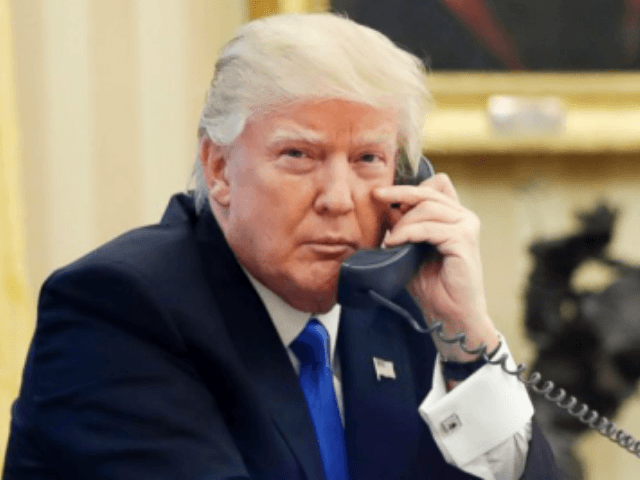Turkish government sources told the newspaper Hurriyet on Thursday that the White House readout of a call between U.S. President Donald Trump and his Turkish counterpart Recep Tayyip Erdogan “does not accurately reflect” the conversation and that its contents were “not true.”
Anadolu Agency, Turkey’s state-run news outlet, also cited its own sources that disputed the White House’s version of the call, in which Trump reportedly pressured Erdogan to limit the invasion of neighboring Syria his military began last week.
“The readout issued by the White House does not accurately reflect the content of President [Recep Tayyip] Erdoğan’s phone call with President [Donald] Trump,” sources told Hurriyet. “President Trump did not share any ‘concerns [about] escalating violence’ with regard to the ongoing military operation in Afrin. The two leaders’ discussion of ‘Operation Olive Branch’ was limited to an exchange of views.”
The sources did cede to the newspaper that Trump had urged Erdogan to limit the invasion to Afrin, a stable corner of northern Syria controlled by U.S.-allied Kurdish militias, and not expand into Manbij, where U.S. forces are present. Erdogan has threatened to expand his reach into Manbij, claiming both that city and Afrin are home to “terrorists.”
The Turkish government officials in question also claimed that Trump did not tell Erdogan that he disapproved of “destructive and false rhetoric coming from Turkey,” language used in the readout.
The sources also claimed that Trump promised to stop sending weapons to the Syrian Kurdish People’s Protection Units (YPG), close U.S. allies who have played a key role in the defeat of the Islamic State in the country. The Turkish government considers the anti-Islamist YPG a terrorist group despite its contributions to the liberation of much of Syria, including Islamic State “capital” Raqqa, and the maintenance of stability in places like Afrin.
Hurriyet‘s report almost identically mirrors Anadolu’s. The newspaper adds remarks from Foreign Minister Mevlüt Çavuşoğlu, who dismissed the readout on the record as false.
“I think the statement was prepared by the United States before the telephone conversation took place,” Çavuşoğlu told reporters on Thursday. “Hence, it did not fully reflect the truth.”
“President Trump relayed concerns that escalating violence in Afrin, Syria, risks undercutting our shared goals in Syria,” the White House said in its statement on the call between the two world leaders. “President Trump invited closer bilateral cooperation to address Turkey’s legitimate security concerns.”
The statement goes on to add:
[Trump] urged Turkey to deescalate, limit its military actions, and avoid civilian casualties and increases to displaced persons and refugees. He urged Turkey to exercise caution and to avoid any actions that might risk conflict between Turkish and American forces.
…
President Trump also expressed concern about destructive and false rhetoric coming from Turkey, and about United States citizens and local employees detained under the prolonged State of Emergency in Turkey.
The claim Erdogan has made that the Trump administration has met with the most resistance is the claim that the invasion of Afrin was necessary to fight off “terrorists” and that Turkey has eliminated an Islamic State threat there. “We do not see ISIS in that area,” State Department spokeswoman Heather Nauert flatly confirmed this week, echoing statements from YPG officials in Afrin who insist that the Islamic State has never been able to establish itself there, largely because of the YPG’s presence.
Erdogan has also claimed that Afrin is an Arab area, and thus, in need of “liberation” from the Kurds. Multiple regional experts have contested this, identifying Afrin as a mainly Kurdish area, with Yazidi, Christian, and other minorities.
Ankara’s claims that the operation, dubbed “Olive Branch,” is necessary to fight ISIS calls into question Erdogan’s promise that Turkish troops are only present in Syria “to end the rule of the tyrant [Bashar al-] Assad,” which he made in November 2016. Erdogan has repeatedly referred to Assad as a “terrorist” – as Assad has referred to Erdogan – and not only claimed that Assad, not ISIS, was his target in Turkey, but stood accused of aiding ISIS terrorists in 2014.

COMMENTS
Please let us know if you're having issues with commenting.